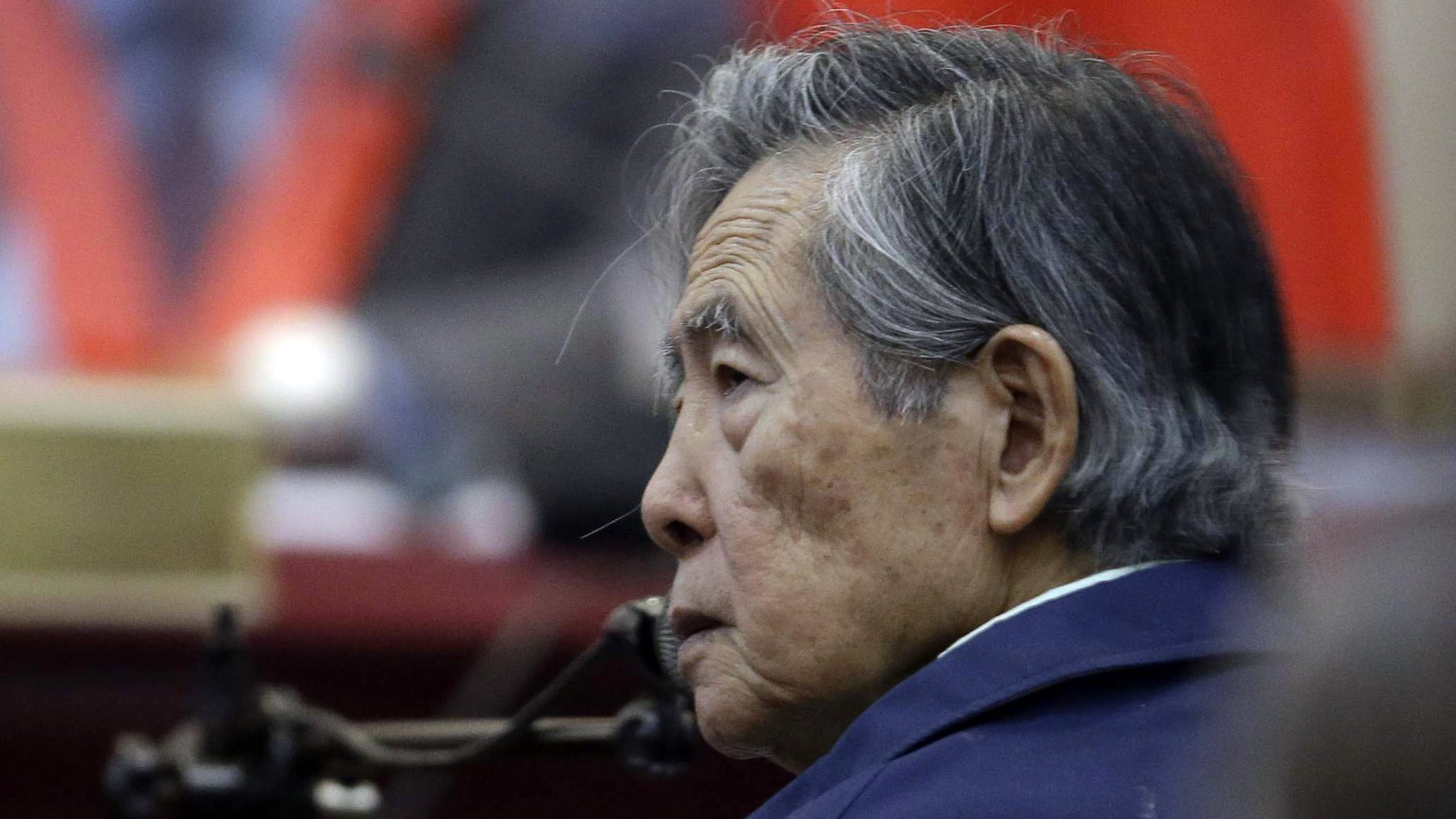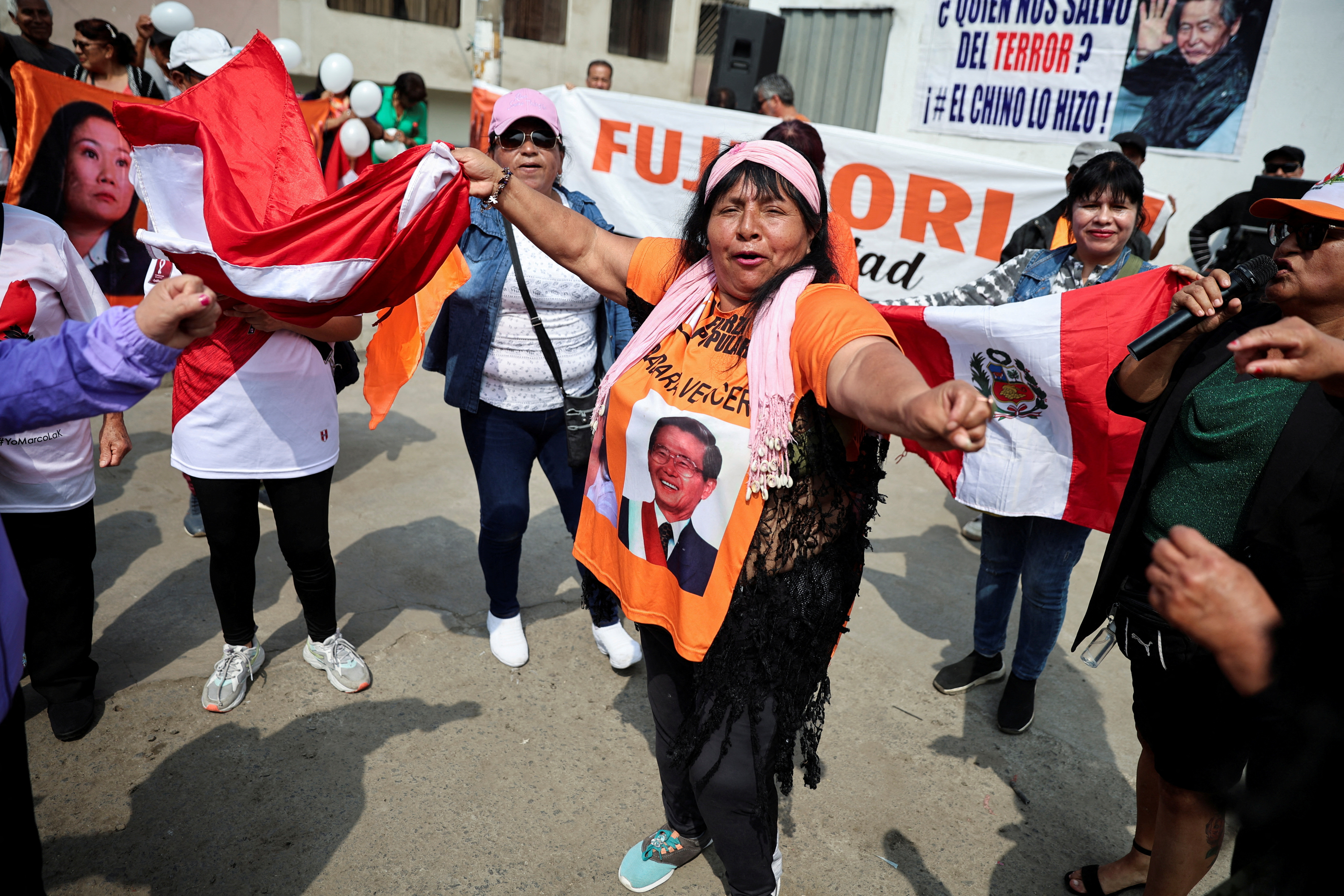Peru's Constitutional Court Orders Immediate Release Of Former President Alberto Fujimori
In a surprising turn of events, Peru's constitutional court orders immediate release of former President Alberto Fujimori.
Author:Dexter CookeReviewer:Hajra ShannonDec 06, 20235K Shares363.2K Views

In a surprising turn of events, Peru's constitutional court orders immediate release of former President Alberto Fujimori.
This decision, outlined in a court document published on Tuesday, adds another layer to the complex legal journey of the 85-year-old former leader.
Fujimori's Decade-Long Rule
Alberto Fujimori, who ruled Peru through the 1990s, is currently serving a 25-year sentence for human rights abuses and corruption.
The court's recent ruling is based on an appeal seeking to reinstate a 2017 pardon granted to Fujimori on humanitarian grounds.
Despite a previous favorable decision in 2022, the ruling was suspended due to pressure from the Inter-American Court of Human Rights (IACHR).
Fujimori's lawyer, Elio Riera, expressed optimism about the former president's imminent release.
“„He’s very calm, enthusiastic and clinically stable. He’s very hopeful about the fulfillment of this order.- Mr. Fujimori’s lawyer, Elio Riera
The legal saga took a significant turn when the constitutional court deemed the appeal for the 2017 pardon "founded."
“„While the court opened the door to a new, legal pardon, Fujimori and his defense and family have never wanted to cross it.- Mr. Fujimori’s lawyer, Elio Riera
Controversial Pardon And Public Reaction
Originally convicted in 2009 for ordering the massacre of 25 people in the early '90s, Fujimori received a pardon on Christmas Eve in 2017 from then-President Pedro Pablo Kuczynski.
This move divided public opinion in Peru, with some viewing Fujimori as a dictator and others as a hero. The families of the massacre victims strongly opposed the pardon, leading to Fujimori's return to prison in October 2018.
The recent court decision has drawn criticism from human rights activists who argue that it contradicts calls for justice from international organizations.
Carlos Rivera, a lawyer for the NGO Legal Defense Institute, labeled the ruling as a threat to the rule of law, predicting potential international legal consequences.

Institutional Decisions And Political Landscape
Peru's Constitutional Tribunal voted 3 to 1 to reinstate the 2017 presidential pardon, challenging the Inter-American Court of Human Rights' previous findings.
“„The body that decides is the Constitutional Tribunal. The Inter-American Court of Human Rights can say whatever it wants and do what it believes is appropriate, but we don’t have to listen to it.- the right-wing lawmaker José Cueto
Some experts see this as a sign of institutional decay in a country grappling with back-to-back political crises.
“„Until now, we hadn’t seen this attitude of the Peruvian State of open defiance, of saying basically that it’s no big deal if we do not comply with our international obligations.- Pedro Grández, an expert on Peruvian constitutional law
The decision also comes amid a surge in political scandals and concerns about impunity in the nation of 33 million people.
Fujimori's Political Legacy And Health Concerns
Alberto Fujimori, who won election three decades ago as an anti-establishment figure, came to power during a turbulent time that saw left-wing rebel activities and economic difficulties.
His presidency was characterized by a harsh counterinsurgency campaign, leading to numerous extrajudicial killings.
Now 85 and reportedly suffering from pulmonary fibrosis, a terminal illness, Fujimori has spent 16 years in prison.
The recent court ruling adds another chapter to the roller coaster surrounding his incarceration, with his family maintaining that he deserves a legal pardon conforming to international standards.
Final Words
As Peru navigates the aftermath of this court decision, questions linger about the country's commitment to international obligations and the potential implications for human rights on the global stage.
The controversy surrounding Alberto Fujimori's release showcases the intersection of legal intricacies, political dynamics, and the pursuit of justice in a nation with a complex history.

Dexter Cooke
Author
Dexter Cooke is an economist, marketing strategist, and orthopedic surgeon with over 20 years of experience crafting compelling narratives that resonate worldwide.
He holds a Journalism degree from Columbia University, an Economics background from Yale University, and a medical degree with a postdoctoral fellowship in orthopedic medicine from the Medical University of South Carolina.
Dexter’s insights into media, economics, and marketing shine through his prolific contributions to respected publications and advisory roles for influential organizations.
As an orthopedic surgeon specializing in minimally invasive knee replacement surgery and laparoscopic procedures, Dexter prioritizes patient care above all.
Outside his professional pursuits, Dexter enjoys collecting vintage watches, studying ancient civilizations, learning about astronomy, and participating in charity runs.

Hajra Shannon
Reviewer
Hajra Shannona is a highly experienced journalist with over 9 years of expertise in news writing, investigative reporting, and political analysis.
She holds a Bachelor's degree in Journalism from Columbia University and has contributed to reputable publications focusing on global affairs, human rights, and environmental sustainability.
Hajra's authoritative voice and trustworthy reporting reflect her commitment to delivering insightful news content.
Beyond journalism, she enjoys exploring new cultures through travel and pursuing outdoor photography
Latest Articles
Popular Articles